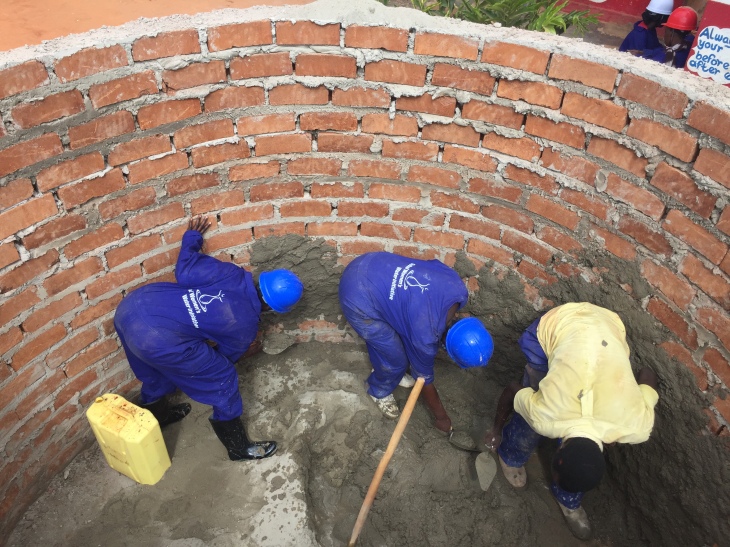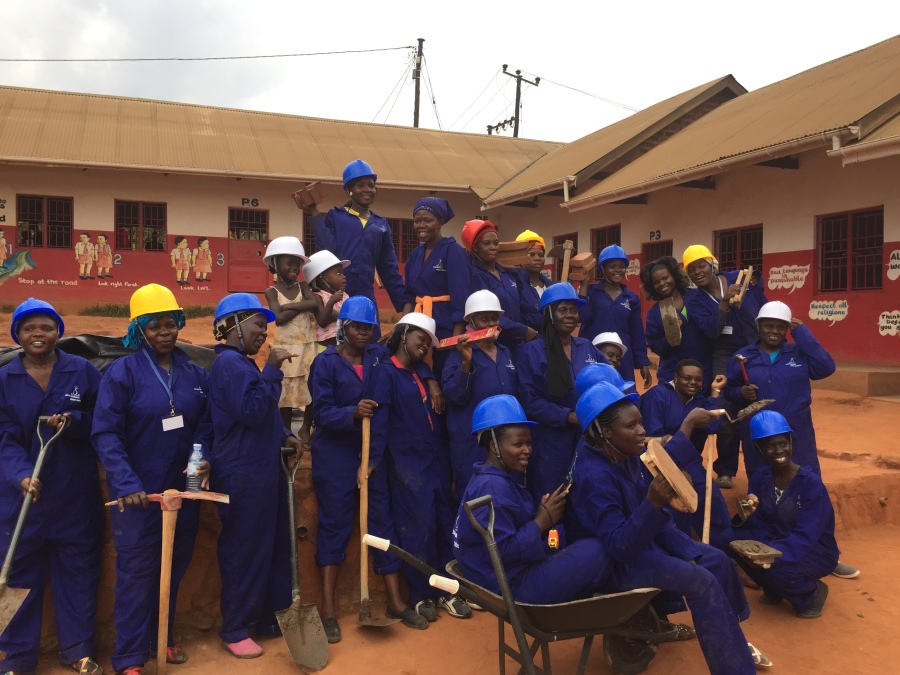Since June 8, I have been busy supporting local Ugandan and Kenyan GWWI staff and participating in two GWWI trainings, in Kampala, Uganda. The first session was held for ten teams of experienced Kenyan, Tanzanian, and Ugandan water, sanitation, and hygiene (WASH) facilitators, masons, and community mobilizers. These pairs of women, attending as representatives of their grassroots organizations, came to learn about how to write effective funding proposals aimed at local and international stakeholders. During most of this time, I sat quiet, listening in awe of the incredible women around me – these are some of the most powerful and resilient women I have ever met. I am honored to be here.

The second week introduced eight new teams of women-led grassroots organizations from Kenya and Uganda to WASH (they will be attending GWWI trainings for four years). These women range in age from 23 to 65. Many are primarily farmers, while others sell necessities from roadside stalls. In this Water Access Training, we learned about what pollutes water, the effects of polluted water on health, and how to protect water sources using locally available resources. We learned how to test for water quality using relatively cheap, easy-to-use materials. We also had workshops on participatory integrated community development, in which we discussed at length how to ethically, compassionately, and effectively introduce new ideas and techniques into their rural communities. Together, we built a 15,000 liter interlocking stabilized soil block water tank which harvests rainwater for a primary school in Kawempe, a slum in Kampala. For many of these women, due to local gender norms, this was the first time they had ever climbed ladders and wielded hammers. Every day, there is much singing and dancing as we lay bricks, mix cement, and plaster walls.
 The function of these first three weeks has been to introduce Nathalie and I to the role of women in WASH, within Uganda. Gaining this context has been very important in helping us craft our research methods and understand the cultural, social, economic, and political elements at play.
The function of these first three weeks has been to introduce Nathalie and I to the role of women in WASH, within Uganda. Gaining this context has been very important in helping us craft our research methods and understand the cultural, social, economic, and political elements at play.
Alongside this training, Nathalie and I have been fine-tuning our interview and coordinating with Uganda Rain Water Association, who will be supporting us throughout our research. Starting July 10, we will begin traveling (by bus, by truck) to smaller grassroots organizations across Uganda. We expect to interview, in person or online, over 200 women who work as WASH masons, trainers, and facilitators, in all five of Uganda’s regions.

